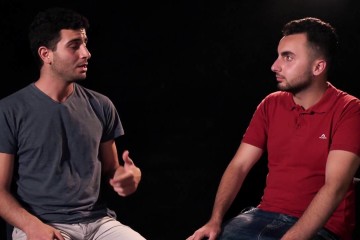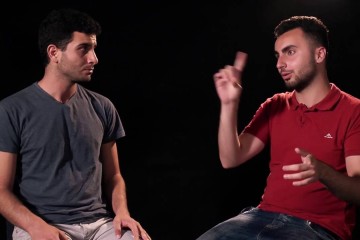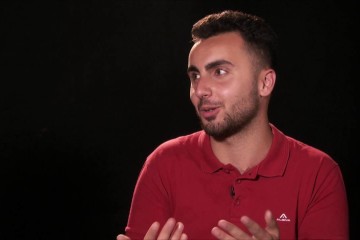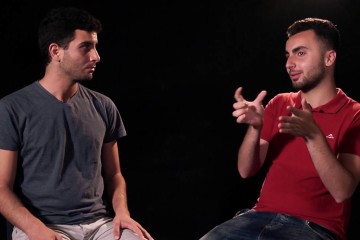The women of Full Frame Media’s One Table discuss what it is like to be a woman in this region. Daniella Crankshaw says that women are free to do whatever they want. Yet there is still a big disparity in Israel and the entire Western World between men and women. There is a long way to go before there is equality.
Mira describes her childhood in her village in the Galilee, and tells us that her first songs were about women’s empowerment.
Transcription:
Daniella: Alright, as a woman, that’s an interesting question. I actually feel that personally, My own experiences as a woman, have been very liberated in Israel I have a right to my opinion I have a right to express that opinion I think that in the world itself there is still inequality for women and it has to be bought to the level where women are equal and there is still a very long way to go even in this country so, specifically I think that as a woman I’m privileged to be a woman, I think its great to be a woman, and I think that we are so capable of doing so many incredible things as women, we still have some way to go though to be on par with men at least. If we want to be on par with men. I think we want to surpass them That’s the big question.
Mira: You know, wanting to have the same rights, the same abilities to do whatever I want. And I don’t come from a backwards village. My village is not very religious, its not backwards in any way. Its a very modern village. But the Arab society is still more conservative than Western societies. So as a girl growing up, for me it was… My first encounter was with the fact that I can’t do just what I want to. And I was quite agitated by the fact that boys can do whatever they want they can wear whatever they want to nobody asks them what time they are coming back while for me it was totally different. The first songs I ever wrote were about women’s rights were about women facing violence at home so the woman thing, the gender thing was my first thing to deal with, I guess.
The political thing only came into my life only when I left my village. Because there the whole time I was the girl trying to stand up for her rights and then I left the village and I went to university where the majority is Jewish, and suddenly I was the Arab. So the gender thing got switched into the political thing now I’m the Arab fighting for her rights. But yes, it totally started from being a woman in a machoistic, patriarchal society. And I still fight for that because although we’ve done I think Arab women in Israel have done amazing, amazing progress, but still, like you said I think the world is not clean of of racism against women of discrimination against women so we still have a long way to go especially in Arab society.
But I think today that women in Arab society are – Wow look at you, I mean women are amazing leaders we have some really great leaders doing amazing stuff and I do believe in women’s power as well. So I’m saying, we have done a lot I mean look at the women here. Its amazing. But there is a long way to go still. I mean look at what’s going on in the world in general, I mean, how many CEOs do they have in America who are women? What are we talking about here? Salaries? There’s obvious discrimination. There’s obvious discrimination against women. So of course the more you go into niche societies, like more conservative societies, of course you’ll have it more. you can observe it more clearly. So we still have a lot to do.




